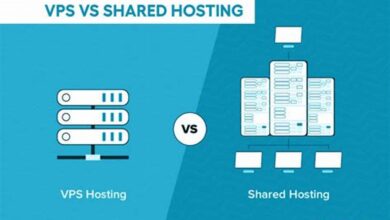Best Shared Web Hosting, Plans & Pricing

Selecting the right web hosting service is crucial for any online presence, whether a personal blog, a small business website, or a large e-commerce platform. Choosing optimal hosting affects website speed, reliability, security, and scalability. This discussion focuses on finding top-tier shared hosting solutions, exploring available plans, and understanding the associated pricing structures.
Performance
Reliable and fast servers are essential for a positive user experience and search engine ranking. Look for providers offering high uptime guarantees and utilizing modern server technology.
Storage
Assess storage needs based on website content, including text, images, and videos. Choose a plan that provides ample space for current and future growth.
Bandwidth
Sufficient bandwidth is crucial for handling website traffic. Consider anticipated visitor numbers and choose a plan that accommodates potential spikes in traffic.
Security
Website security is paramount. Look for providers offering features like SSL certificates, malware scanning, and regular backups to protect data and maintain user trust.
Customer Support
Responsive and knowledgeable customer support can be invaluable when encountering technical issues. Prioritize providers with 24/7 support availability through various channels (phone, email, chat).
Scalability
As a website grows, hosting needs may change. Consider providers offering easy upgrades to higher-tier plans or alternative hosting solutions to accommodate increasing demands.
Features
Evaluate additional features offered, such as email accounts, domain registration, website builders, and e-commerce tools, to determine if they align with website requirements.
Pricing
Compare pricing structures across different providers, considering both initial costs and renewal rates. Be wary of exceptionally low prices, as they may come with limitations or hidden costs.
Control Panel
A user-friendly control panel simplifies website management tasks. Look for intuitive interfaces that allow easy access to files, databases, and other essential functionalities.
Tip 1: Read Reviews
Consult online reviews and testimonials from other users to gain insights into a provider’s performance, reliability, and customer service.
Tip 2: Compare Plans
Carefully compare different hosting plans offered by a provider, paying attention to features, limitations, and pricing tiers.
Tip 3: Consider Future Needs
Choose a plan that not only meets current requirements but also allows for future growth and expansion of the website.
Tip 4: Test Customer Support
Contact the provider’s customer support before committing to a plan to assess their responsiveness and helpfulness.
What is the difference between shared hosting and dedicated hosting?
Shared hosting involves multiple websites sharing resources on a single server, while dedicated hosting provides an entire server for a single website, offering greater control and performance.
How do I choose the right amount of bandwidth?
Estimate website traffic based on anticipated visitor numbers and average page size. Choose a plan that offers sufficient bandwidth to handle peak traffic without performance degradation.
What security measures should I look for in a hosting provider?
Essential security features include SSL certificates, malware scanning, firewalls, and regular data backups. Look for providers with a strong track record in security.
Can I upgrade my hosting plan later?
Most providers allow upgrades to higher-tier plans as website needs evolve. Confirm the upgrade process and associated costs before committing to a plan.
What is an uptime guarantee?
An uptime guarantee represents the percentage of time a provider guarantees their servers will be operational. A higher uptime percentage indicates greater reliability.
How important is the control panel?
A user-friendly control panel simplifies website management, allowing easy access to files, databases, email accounts, and other essential functions.
Choosing the correct web hosting solution requires careful consideration of various factors. By evaluating performance, security, features, pricing, and scalability, individuals and businesses can select a hosting plan that best aligns with their website’s specific requirements and supports its long-term success.





